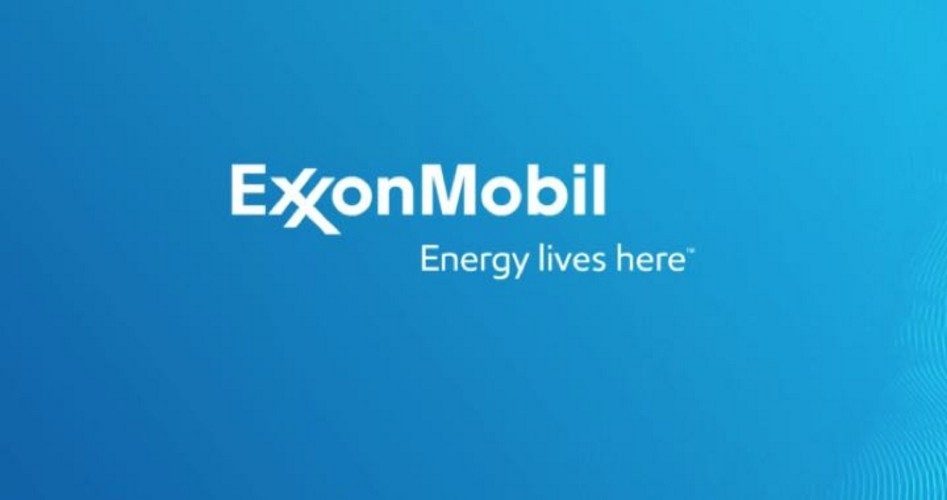
The chief executive of ExxonMobil, the largest of the seven publicly traded “supermajor” oil companies known as “Big Oil,” Darren Woods, posted a blog on Monday announcing that his company would be redirecting $35 billion that would otherwise be headed for Washington, D.C., into much more potentially profitable projects. He gave credit to the new tax reform law just signed into law by President Trump:
These investments are underpinned by the unique strengths of our company and enhanced by the historic tax reform recently signed into law….
These positive developments will mean more jobs and economic expansion across the United States in a myriad of industries.
This $35 billion is on top of the $23 billion to $27 billion the company said last year that it would be investing globally over each of the next three years. And there’s more to come, said Wood: “We’re actively evaluating the impact of the lower tax rate on the economics of several other projects currently in the planning stages.”
Translation: Monday’s announcement is just the beginning for ExxonMobil. The company has 20 billion barrels of proven reserves of crude oil “equivalent” (oil and natural gas) and a refinery capacity of nearly five million barrels a day. Its 20 refineries are spread across 14 countries, and it operates 100 major exploration projects around the world. It recently purchased $6 billion worth of oil leases from the Bass family on top of the Permian Basin in Texas and New Mexico, and is expected to expand further its operations in North Dakota above the Bakken Formation.
Wood praised tax reform for providing his company the opportunity to redirect its resources to more profitable opportunities:
These are quality investments for our shareholders that are made even better by tax reform. These are all possible because of the resource base developed by our industry along with sound tax and regulatory policies that create a pro-growth business climate here in the U.S.
Wood estimated that the new investments, once completed, will add an estimated 12,000 new workers to his company which already employs 73,500 people. The implications for the economy are obvious, and enormous: Exxon rarely misses an opportunity to move capital into profitable projects, adding to its already enormous $330 billion asset base. It will still pay taxes on those additional profits, just at a much lower level. Those nearly 90,000 people on the payroll will also be paying taxes, also at lower levels than before.
But what is often missed is that ExxonMobil is just one, although one of the largest, of the companies announcing such investments directly as a result of tax reform and its lower tax rates. Walmart, Apple, Boeing, Comcast, and hundreds of others have announced similar plans to reward their employees through bonuses and/or salary increases or through additional expanded employment opportunities. What also is often missed is the “ripple-effect” of monies being redirected from Washington to places where it is much more profitably employed. Every company does business with dozens if not hundreds of other companies that consider those investments as increased business revenue. That new flow encourages further investment at a micro level. It’s the unseen hand of Adam Smith that improves the standard of living for everyone, even as each individual and company seeks its own best opportunities.
All of this is highly annoying to far-left liberal Democrats, who seem to have a death wish, especially during this mid-term election year. California’s House Democrat Nancy Pelosi seems most skilled at self-immolation by calling those salary increases and bonuses “crumbs,” while former DNC chairwoman Debbie Wasserman Schultz (D-Fla.) dismissed them as “chump change.” To this writer’s knowledge, not a single employee offered either a bonus or a salary increase has turned it down. And $35 billion from ExxonMobil alone is hardly “chump change.”
Not only are these new funds being redirected away from Washington, known for its extravagant wastefulness in spending other peoples’ money, it is very likely to be employed in highly profitable projects that have now become viable thanks to tax reform.
Why, even the International Money Fund (IMF) has been forced to admit that these new investments are of such a magnitude that the ripple effect worldwide will be to drive global GDP to close to four percent in 2018 and years following.
Image: Screenshot from ExxonMobil ad
An Ivy League graduate and former investment advisor, Bob is a regular contributor to The New American magazine and blogs frequently at LightFromTheRight.com, primarily on economics and politics. He can be reached at [email protected].
Related article:



